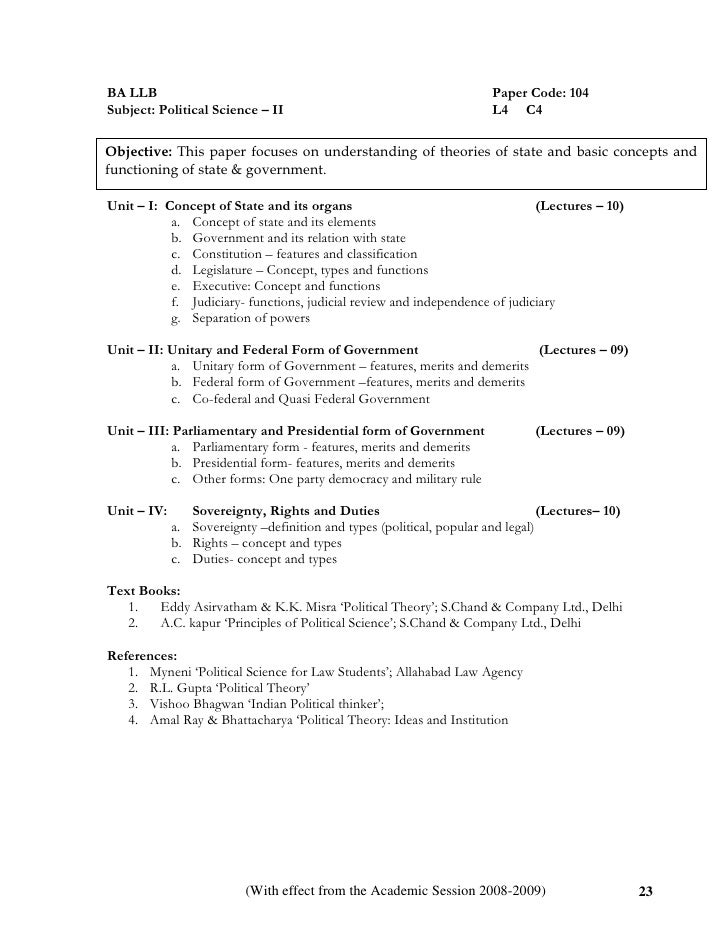An Introduction To Political Theory Ac Kapoor
• • • • • • • • • • • • • • • • • • • • • • • • • • • • • • • • • • • • • • • • • • • • • • • • • • • • • • Department of Politics and International Studies Introduction to Political Theory Module Code: 153400001 Credits: 30 Year of study: Year 1 Taught in: Full Year This is a compulsory and core course for all students taking BA Politics and a first year option for BA Politics and International Relations. It provides an introduction to the foundational concepts of political theory and the study of politics through the examination of classic texts in political thought.


Students will read texts by key thinkers such as Plato, Aristotle, Thomas Hobbes, Jean-Jacques Rousseau, Mary Wollstonecraft, J.S. Mill, Karl Marx and M.K. Objectives and learning outcomes of the module The principal objective of this course is to equip students with the analytical skills needed to undertake theoretical, empirical and comparative courses in the second and third years of their degree programme.
Students will acquire a theoretical understanding of the ideas and values that underpin the organization and structure of political communities across time and space. These analytical skills and knowledge will be developed through the study and discussion of excellent examples of political argument. By the end of the year students will have developed their abilities to develop coherent and concise arguments and to present these clearly through writing and speech. Method of assessment Assessment comprises of four 600 word essays worth 15% each, and one 3000 word research essay worth 40%.
Overview Political philosophy contains some of the greatest writings in the western intellectual tradition, as well as highly stimulating contemporary contributions. This online course introduces the student to classic and contemporary texts in the context of approaching some central questions in political philosophy concerning, the state, democracy, liberty and justice. Listen to Dr Giovanni de Grandis talking about the course: Listen to Dr Wendy Morrison talking about the course. The course will provide an introduction to political philosophy by examining the justification of the state, problems democracy, liberty, justice, and feminist theory. Students will be guided through the thought of various classical and contemporary thinkers in both primary and secondary readings, and are encouraged to think for themselves about the problems addressed.
They will engage in various optional activities to stimulate personal reflection, and will contribute to group discussion designed to create a supportive online community with the common task of acquiring an understanding. By the end of the course students should feel confident of their own position on some of the debates studied. For information on how the courses work, and a link to our course demonstration site, please click. Programme details 1. Cambridge Soundworks Drivers Windows 8.
Politics, Philosophy and Political philosophy • Introducing political philosophy • The disciplines devoted to the study of politics • Some philosophical approaches to politics • The approach taken in this course 2. Hsn Explanatory Notes. The state of nature • Introduction to the state of nature • Hobbes • Locke • Rousseau 3. Justifying the state - the social contract • Political obligation and the social contract • Locke and consent • Tacit consent and Hume's criticisms • Hypothetical consent 4.
Political Theory: An Introduction. Particular person philosophy Points for Discussion political theory positive liberty principle private property. Sep 7, 2017 - You can study Political Theory by O P Gauba. His language is very comprehensive and rich and the book is provided with maps, flow charts and illustrations to explain the point. You can also study Political Theory by V D Mahajan. It has a very read.
Justifying the state - Utilitarianism, the principle of fairness • Utilitarianism • The utilitarian theory of political obligation • The principle of fairness 5. Plato against democracy • Democracy: General conceptual issues • Plato against democracy • Analysing Plato's argument • Responding to Plato 6. Defending democracy • Rousseau • Rousseau and democracy • Mill • Mill and democracy 7. Liberty • Mill on liberty • Stephen, Devlin and Hart • Liberty • The Rushdie affair 8. Private property and the market • Abolishing property?
• Locke on property • Private property and the free market 9. Rawls's theory of justice • Rawls • The restaurant • Rawls discussion 10. Feminist criticisms of liberalism • Feminism • Gender difference • Liberal rights and feminism We strongly recommend that you try to find a little time each week to engage in the online conversations (at times that are convenient to you) as the forums are an integral, and very rewarding, part of the course and the online learning experience. Recommended reading To participate in the course you will need to have regular access to the Internet and you will need to buy the following texts: Wolff, J., An Introduction to Political Philosophy (OUP, Oxford, 2006) NB: This is the second of three editions of this book. Surface Serial Number Check there. Rosen, M., and Wolff, J. (eds), Political Thought (OUP, Oxford, 1999) Students will be encouraged to use the.